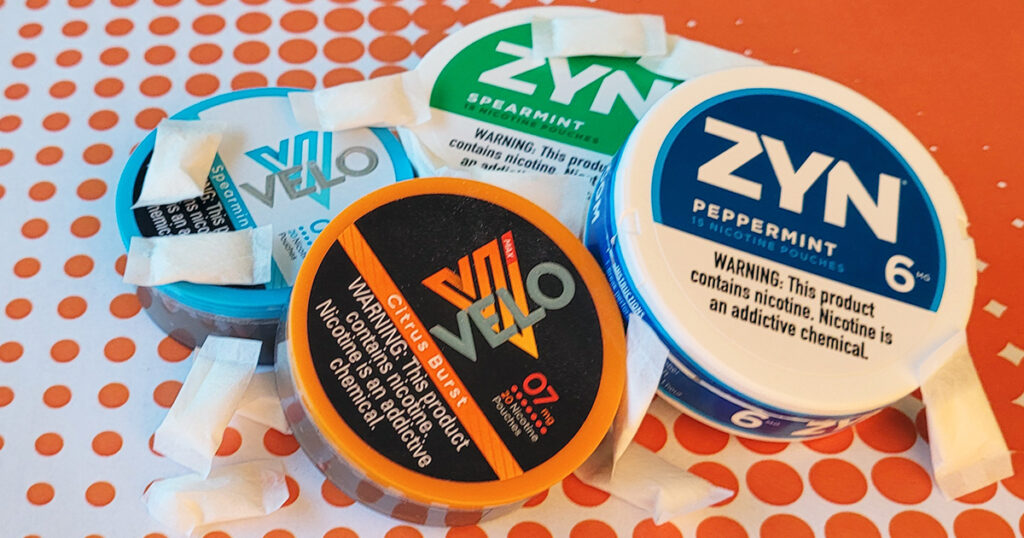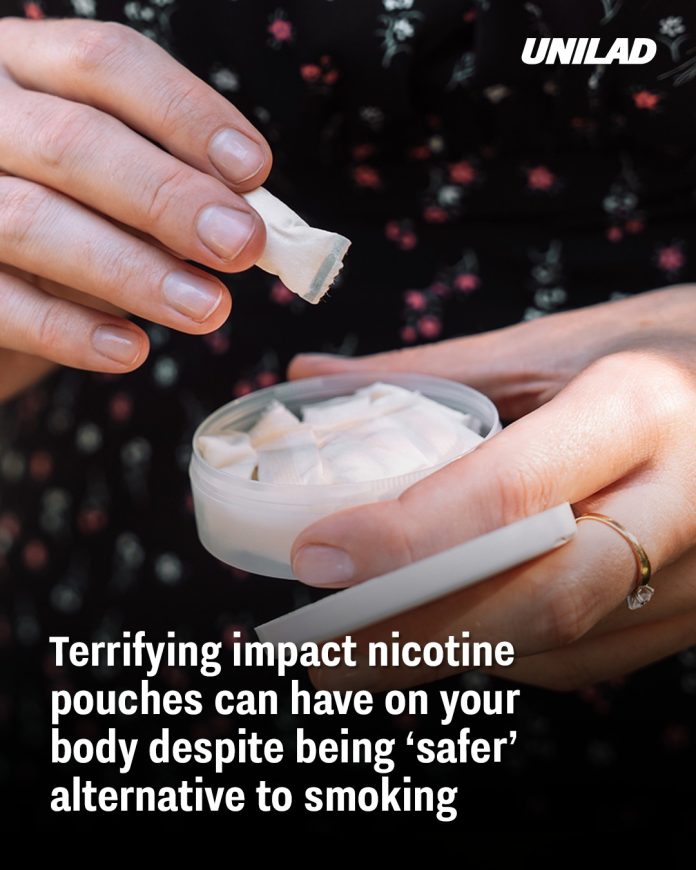Nicotine pouches are small, white sachets that users place under the lip to absorb nicotine through the gums. Unlike traditional chewing tobacco or snus, these pouches don’t contain tobacco leaf. Instead, they use nicotine in a purified form. Because they skip the combustion and tar of cigarettes, some consider them “safer”—but that doesn’t mean they’re risk-free.
Addiction and Dependence
One of the most serious concerns about pouches is nicotine addiction. Nicotine is highly addictive, and regular use of these pouches can lead to dependence. For teenagers and young adults, the risks are even greater: nicotine exposure during adolescence can impair brain development, affecting impulse control, learning, and mood. When people try to stop using pouches, they may experience withdrawal symptoms such as irritability, anxiety, difficulty concentrating, headaches, and mood swings.

Cardiovascular Effects
Even though nicotine pouches don’t contain smoke, nicotine itself still has strong effects on the heart and blood vessels. It can raise heart rate and increase blood pressure. Long-term use may contribute to a higher risk of cardiovascular problems like heart disease or stroke.
Oral Health Risks
Putting a pouch directly against gum tissue for long periods can damage the gums. Some of the reported oral issues include:
- Gum irritation, soreness, and inflammation.
- Gum recession, where gum tissue pulls away from the teeth, making roots more exposed.
- Mouth ulcers or sores.
- Potential risk of cavities or other dental decay, because nicotine can reduce saliva flow, and flavoring agents can irritate tissue.
- Some experts also worry about long-term damage to oral tissues from repeated exposure to the pouch materials.
Chemical Exposure and Cancer Risk
Although nicotine pouches like Zyn don’t include tobacco leaf, they may still contain harmful chemicals. Studies have found substances such as formaldehyde, nitrosamines, heavy metals (like nickel and chromium) in some pouches. Some of these chemicals are potentially cancer-causing.
However, more research is needed because these pouches are relatively new and long-term data is limited.
Other Side Effects
Beyond addiction and oral effects, nicotine pouch users may also report:
- Nausea, upset stomach, hiccups, or other digestive discomfort, especially when saliva containing nicotine is swallowed.
- Dry mouth (xerostomia) because nicotine can reduce saliva production.
- Possible impact on metabolism: some research suggests nicotine may affect insulin and glucose tolerance, which could influence diabetes risk over time.
- Mental health effects: while nicotine may initially feel calming, it can worsen anxiety and tension between uses, potentially creating a cycle of craving and distress.
Uncertainty About Long-Term Safety
Because nicotine pouches are a relatively new product category, scientists are still investigating their long-term impacts.
Scientific American
Health agencies note that we don’t yet fully understand how consistent, long-term use might affect the heart, mouth, or other systems in the body.
Regulators have started to monitor marketing and use closely to watch for potential harm, especially among young people.

Who Should Be Especially Careful
- Young people: Nicotine’s effect on a developing brain can be particularly harmful.
- People with heart conditions: The cardiovascular strain could worsen existing problems.
- Anyone new to nicotine: Even if they don’t smoke, starting with pouches can lead to addiction.
- Those worried about oral health: Regular contact with gums increases risk for dental issues.
Bottom Line
Nicotine pouches like Zyn might be marketed as a “cleaner” or “safer” alternative to smoking, but they are far from harmless. They carry risks, including addiction, cardiovascular stress, gum damage, potentially harmful chemicals, and other side effects. Because we don’t have decades of data yet, the long-term safety remains uncertain. If someone is considering using them — or already does — it’s important to weigh the possible risks carefully. For those trying to quit nicotine or tobacco, it’s usually better to talk to a trusted adult or a healthcare professional about safer, proven methods.

















